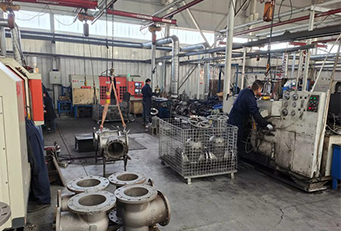hot water solenoid valves
Understanding Hot Water Solenoid Valves What You Need to Know
Hot water solenoid valves are essential components in various applications where the control of hot water flow is required. These electrically operated valves are widely used in industrial, commercial, and residential systems to automate water flow management and ensure optimal efficiency. In this article, we will delve into the functionality, advantages, and applications of hot water solenoid valves.
What is a Solenoid Valve?
A solenoid valve is an electromechanical device that controls the flow of liquids or gases through a pipe or tube. It consists of a solenoid (an electromagnetic coil) that, when energized, creates a magnetic field, which subsequently operates a valve mechanism to either open or close a specific passageway. Hot water solenoid valves are specifically designed to handle higher temperatures, typically up to 90°C or more, depending on the materials used in construction.
How Does it Work?
The operation of a hot water solenoid valve is straightforward. When electricity is supplied to the solenoid coil, it generates a magnetic field that pulls a plunger or armature, allowing hot water to flow through the valve. Conversely, when the electric current is turned off, the plunger returns to its original position, closing the valve and stopping the flow. This simple yet effective design allows for precise control over water flow, making solenoid valves invaluable in numerous applications.
Advantages of Hot Water Solenoid Valves
1. Automation One of the primary benefits of using hot water solenoid valves is the ability to automate systems. They can be remotely controlled via switches, timers, or integrated into more complex management systems. This automation minimizes manual intervention, improving safety and efficiency.
hot water solenoid valves

2. Energy Efficiency By controlling the flow of hot water precisely and only when needed, solenoid valves can help reduce energy consumption. This is particularly beneficial in scenarios where hot water usage fluctuates throughout the day.
3. Compact Size Solenoid valves are generally compact and lightweight, which makes them easy to install in tight spaces, unlike traditional valves, which may require more extensive installation areas.
4. Quick Response Time The electronic operation of solenoid valves allows for rapid opening and closing. This quick response time is crucial in scenarios requiring immediate adjustments to water flow, such as in irrigation systems or industrial processes.
Applications of Hot Water Solenoid Valves
Hot water solenoid valves find applications across various industries, including
- Domestic Plumbing They are often used in washing machines, dishwashers, and hot water heating systems to manage the flow of water efficiently. - Industrial Processes Factories and manufacturing plants utilize solenoid valves to control the flow of hot water in processes like heating, cooling, and washing. - Food and Beverage Industry In food processing, maintaining precise temperatures is essential for safety and quality, making these valves critical for managing hot water in cleaning and cooking processes. - HVAC Systems Solenoid valves play a vital role in heating, ventilation, and air conditioning systems, ensuring the proper flow of hot water for heating applications.
Conclusion
Hot water solenoid valves are integral to modern water management systems, providing automation, energy efficiency, and compact solutions to control hot water flow. Their versatility across various industries underscores their importance in achieving optimal performance in both residential and commercial applications. As technology continues to advance, the role of solenoid valves is only expected to grow, making them a key innovation in fluid control systems.
-
The Key to Fluid Control: Exploring the Advantages of Ball Valves in Industrial SystemsNewsJul.09,2025
-
The Versatile World of 1, 2, and 3 Piece Ball ValvesNewsJul.09,2025
-
Stainless Steel Ball Valves: The Ideal Choice for Efficient Flow ControlNewsJul.09,2025
-
Optimizing Fluid Control with Ball Float ValvesNewsJul.09,2025
-
Manual Gate Valves: Essential for Control and EfficiencyNewsJul.09,2025
-
Everything You Need to Know About Butterfly ValvesNewsJul.09,2025
-
The Versatility of Wafer Type Butterfly ValvesNewsJul.08,2025




